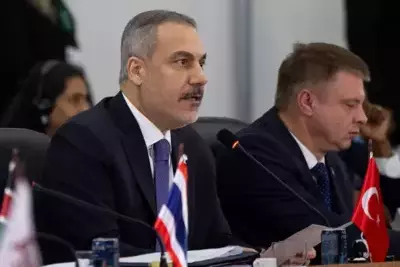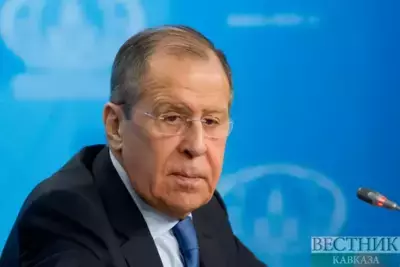The Syrian conflict has exceeded the scope of the Arab revolution, which is directed at overthrowing the current regime. Syria has turned into a center of attraction for regional and non-regional powers, where global interests are clashing. Numerous armed groups which act in Syria are supported financially by foreign countries, including some of Syria’s neighbors, according to Moscow.
Russia fears that the successes of the Syrian army will encourage foreign sponsors of terrorists to intensify their support, including providing the terrorists with dangerous types of modern arms. The point is not only in a change of the regime or a struggle against radicals, but which regional groups can win the war.
The Deputy Director of Russia's Institute for Strategic Studies, the head of the Asia and Middle East Center, Anna Glazova, thinks that “changing the balance of power between Shiites and Sunnis due to the sanctions, which were introduced against Iran for many years, has given rise to such an illusion in some Gulf countries that it is possible to take advantage of this situation to attack the Shiite position. As the situation in Syria was destabilized and the anti-Assad coalition was created, this situation has been used for the promotion of slogans, including those about the necessity of ending the Alawite domination, that is, changing the existing confessional interaction. At the same time, it is well known that the Shiites have never been oppressed in this country. They occupy privileged positions in business, banking, were a part of the senior management personnel and the army.”
According to Glazova, “the battle is very serious, because the failure of the Saudis in Syria will mean a strategic defeat of Riyadh in the face of the whole Arab world. Iran's full integration into the regional and global system of the foreign policy will provoke and is already provoking opposition among a number of countries that have identified themselves as the Sunni camp. The recent conflict between Iran and Saudi Arabia demonstrates it as well as possible. The second demonstration is the attempt by Saudi Arabia to create a so-called anti-terrorist Sunni coalition. I would call it an anti-Shiite coalition. All these actions mean that the confrontation between Shiites and Sunnis will only intensify in the future.”
Russia is known to be working very closely with Iran, primarily in the area of regional security. “This is the coordination of actions against Daesh, as well as the reason why the information center was set up – to combat so-called Islamic State with the support of Iran, Iraq, Russia and Syria. And this close cooperation, both with Iran and other regional countries, has already caused accusations from the West about the fact that Russia supposedly occupies a pro-Shiite position. Of course, these allegations are absolutely untrue,” Glazova said.
She believes there is a substitution of concepts, because Russia supports these countries not due to their religious affiliation, but solely because they are interested in the fight against the spread of terrorism.
Meanwhile, Yevgeny Bazhanov, Russian political scientist, diplomat, Rector of the Diplomatic Academy of the Russian Foreign Ministry, told Vestnik Kavkaza that Moscow is trying to settle the Syrian conflict together with the West and all Syrian sides: “But it is very difficult to negotiate, because not everyone has the same view on how this should be done. We believe that it is impossible to impose on the Syrians, that's it, let's remove the president and then decide the issue. Elections must be held in Syria, the Syrians themselves should decide who will lead Syria. And if Syria were to decapitated now, it will end as it ended up in Iraq and Libya, when the West was actively against Gaddafi and Hussein, and there are civil wars in both countries.”
Bazahanov believes that the problem should be solved at the negotiating table, even though it is difficult to do: “The opposition consists of different groups, there are extremists, who are recognized by everyone as extremists. There are extremists, whom we consider to be extremists, and the West does not consider them as such. Everybody has his own views and positions. There is Assad's government, which we support as the legitimate government, while the West stands for Assad to quit. And therefore this is a difficult issue. No one knows when it will be solved, but at least Russia will try to solve it.”
















